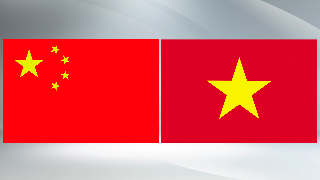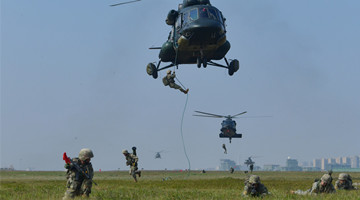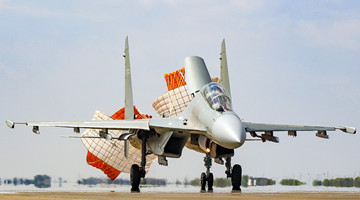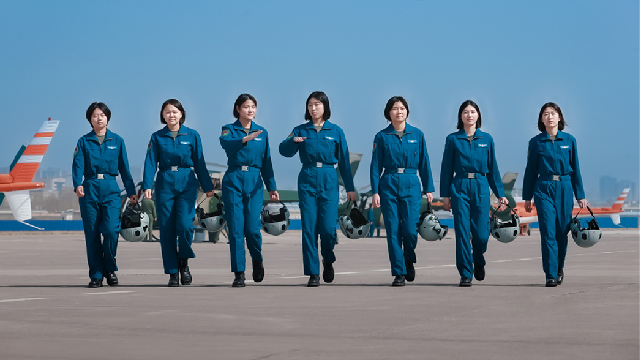By Ling Xi
The ROK Foreign Ministry announced on March 10 that Seoul and Washington had concluded their 9th round of defense cost-sharing negotiations and agreed on the 11th Special Measures Agreement (SMA), according to which the ROK will bear 13.9% increase from the previous year on the defense expenses of stationed American troops in 2021, a new high both in terms of aggregate and growth rate.
The ROK previously refused America's demand for it to bear a much larger proportion of the defense expenses, which led to a cool-off in bilateral relations. After the new round of negotiations, although the proportion borne by the ROK side was reduced a little, it was still higher than the cap it set before, triggering extensive dissatisfaction within the country. Experts said Seoul has agreed to the cost-sharing arrangement as an overture to Washington to mend their ties.
ROK wants to cement the alliance with the US by agreeing to SMA.
According to the latest agreement, the ROK will pay KRW1.18 trillion (about US$1.04 billion) of defense expenses for American troops stationed in the country in 2021, a 13.9% increase from the previous year, including 7.4% increase related to ROK's own defense and 6.5% increase related to the labor cost of Korean personnel for American troops.
The new SMA provides that starting from 2021, remuneration for Korean employees in the military base of American troops will account for 87% of ROK's cost sharing from the previous 75%, which means the ROK government is paying salary for its own nationals rather than paying the US, said Liu Tiancong, deputy director of the Center of Korean Peninsula Studies, China Institutes of Contemporary International Relations.
He added that "the Biden administration shows an obvious intention of strengthening the relationship with ROK during the negotiations, which pleases the ROK side."
Liu Ming, a researcher at the Shanghai Academy of Social Sciences, also held that the Biden administration wishes to reflect its considerations for allies as well as ROK's stance to take responsibility for the alliance in the 11th SMA. Since Seoul has no choice but to rely on America's security guarantee in order to resolve the DPRK-ROK issue, it willingly accepted the gradually rising proportion of its cost-sharing after Washington made some goodwill gestures.
Expensive deal criticized at home
After the new deal was reached, Eun-bo Chung, Ambassador of Korea-US Defense Cost Sharing, called it reasonable and fair, which was not bought by the Korean public or critics.
A group of ROK residents recently protested near the Blue House against the SMA, condemning it as the most humiliating agreement in history, reported JoongAng Ilbo. Yonhap News Agency also reported that political groups in ROK had called on the government to refuse to approve the new agreement and to re-negotiate with the US.
ROK will bear 51% of the defense expenses in 2021, already higher than the proportion borne by the US and set to rise further to 59% in 2025, reported JoongAng Ilbo, adding that the American troops will not be stationed in ROK on American money, but on money paid by Korean taxpayers.
Others analyzed that the latest SMA will pave the way for the US to ask ROK to buy more American weapons and equipment. According to sources, the Biden team, continuing what its predecessor did, is making a "to-buy list of weapons" for Seoul.
ROK paying for American troops outside the Korean peninsula triggers worries at home
According to Liu Ming, America's implementation of its regional strategy in the Indo-Pacific region is pillared by the Quadrilateral Security Dialogue, commonly known as the Quad, with Japan, India and Australia and the US-Japan-ROK alliance. In the alliance, Japan is America's security anchor in the Asia Pacific, while the ROK-US alliance is viewed as of lesser importance in Washington's Asian Pacific policy. Restrained by its relation with DPRK, it's hard for ROK to cooperate with and assist the US outside the peninsula.
However, Washington might have figured out another way to put its allies to work. Yonhap News Agency reported that the negotiations on the 11th SMA didn't mention anything about expenses needed for ROK-stationed American troops to carry out missions outside of the region. As the US is reinforcing its Indo-Pacific strategy and increasing the strategic flexibility of its troops, it's highly likely that American troops stationed in ROK will be assigned to perform missions outside the peninsula, and Uncle Sam may very well include such expenses in the defense expenses to be shared by ROK.
Although Seoul doesn't want to antagonize major countries in the Asia-Pacific region while catering to America's strategic policy, the expenses it pays will mostly likely be used to target those countries directly, which has drawn criticisms in ROK, said Liu Ming.
According to Liu Tiancong, the ROK government doesn't want to pick side between the US and Asian Pacific countries. What decision it will made will hinge on the Blue House's strategic vision and political wisdom.
Editor's note: This article is originally published on southcn.com, and is translated from Chinese into English and edited by the China Military Online. The information, ideas or opinions appearing in this article do not necessarily reflect the views of eng.chinamil.com.cn.









